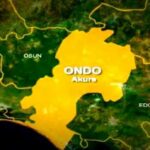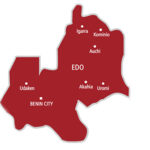
This is a difficult column to write because Malam Ishaq Modibbo Kawu, director-general of the National Broadcasting Commission whom Premium Times of August 5, 2018 reported to have questioned Senator Bukola Saraki’s claim to Ilorin origins, is my friend and brother for whom I have the profoundest respect. It hurts to publicly call him out.
At the same time, I entirely align with the angst that inspired his tirade against Saraki. Like Kawu, I’m from Kwara State and find Saraki’s arrogance and suffocating control of the state insufferable. In December 2016, when President Buhari wrote an overly laudatory birthday wish for Saraki, saying “Saraki has successfully kept the memory of his late father alive by identifying with the grassroots in his home state,” I shot back at the president in my December 24, 2016 column and said, “Nope, Mr. President. Saraki does NOT identify with the grass roots in Kwara State; he exploits them. I am from Kwara, and know that Saraki is the worst evil to ever befall the state.”
In my April 8, 2017 column titled “The False Binary Between Saraki and Buhari,” I described Saraki as “a cold, calculating, corrupt conman who destroys everything that comes in his way.” Earlier, in my October 24, 2015 column titled “Who Will Save Kwara COE Lecturers from Saraki’s Deadly Grip?” I wrote, “Senate President Bukola Saraki is called Kwara State’s ‘Governor- General’ for a reason: He is, for all practical purposes, the state’s de facto governor, and Governor Abdulfatah Ahmed is merely his impotent, obsequious caretaker. Ahmed must dutifully take orders from Saraki or risk losing his cushy surrogate governorship….
“So when I ask who will save lecturers in Kwara State’s college of education lecturers from death and starvation because they haven’t been paid salaries for six or seven months now, I am not barking up the wrong tree. Saraki is the main character in the movie of Kwara politics. Nothing happens there without his imprimatur.”
I have gone to this length just to show that I am no fan of Saraki and his politics. But I would betray the very meaning and essence of my name and my self-imposed duty to correct injurious falsehoods if I allow the ahistorically nativist delegitimization of Saraki’s Ilorin origins by my brother Kawu to go unchallenged.
What Kawu Said about Saraki
Premium Times reported Kawu to have said in a closed WhatsApp group (of past and current northern Nigerian newspaper editors) that Saraki’s family has no roots in Ilorin. (He used the word “asali,” a Hausa word derived from the Arabic asal, which translates as “origin” in English).
Kawu pointed to Saraki’s given names (about which he has no control) as evidence of his foreignness to Ilorin. “Even his names tell anyone who knows Ilorin that this is an ‘alien’ individual. His full names are OLUBUKOLA OLABOWALE ADEBISI (sic),” Premium Times quoted Kawu to have written. “These are not names an Ilorin person would normally be called. And he didn’t have a Muslim name until he wanted to run for governor in 2002-2003! They first named him Muktar after his grandfather and that was then dropped for Abubakar, the name his father was also ‘borrowed’ in Ilorin. These are the facts!”
This is archetypal “othering,” one that Kawu’s enormous intellectual endowment and immersion in critical scholarship should have prevented him from engaging in. I don’t have the space to explode the ahistoricity and sociological poverty of Kawu’s claims in this column, but here’s a start, which I will conclude next week.
Ilorin as an ethnogeny
Ilorin perfectly fits into a concept anthropologists call ethnogenesis, or ethnogeny, which describes how independent ethnic identities emerge from a mishmash of multiple influences. Black Americans, for instance, are an ethnogeny. They are neither entirely African nor entirely European or Native American. They are a new identity that emerged from the cultural, ethnic, racial and historical synthesis of Africans, Europeans, and Native Americans, with the African influence predominating in this matrix.
That is precisely what Ilorin is, too. The Ilorin identity is the product of the fusion of Yoruba, Fulani, Hausa, Baatonu (Bariba), Kanuri, Nupe, Gwari, and Gobir ethnicities and influences. The Yoruba language is the linguistic glue of this fascinating ethnic commixture, and Islam is its religious glue. Kawu knows this more than anyone I know, which is why I was shocked by the pretense to an Ilorin purism that his WhatsApp message suggests.
As anyone who has read the late Professor Abdullahi Smith’s groundbreaking collection of essays titled A Little New Light knows, everyone in Ilorin came from somewhere-relatively recently. The ethnogenesis of the Ilorin identity took place essentially in the 1800s. Dr. Olusola Saraki, Bukola Saraki’s father, was born in 1933. Bukola’s grandfather, Muktar Saraki, must have been born sometime in the late 1800s. If Muktar’s father was born in Ilorin, he was born right in the crucible of the formation of the Ilorin identity. To say someone with that pedigree has no “asali” in Ilorin is to be unfaithful to history.
From Smith’s book, especially the chapter titled “A Little new Light on the Collapse of the Alafinate of Yoruba,” we learn that ‘Alim Salihu (known today simply as Alimi in Ilorin and beyond), the progenitor of the traditional ruling family in Ilorin, came to Ilorin in 1817 on the invitation of Afonja. Alimi had been an Islamic teacher in Ogbomoso, Ikoyi and other Yoruba towns, but Afonja invited him to stay permanently in Ilorin and be his “priest” to give him spiritual fortification against the Alaafin with whom he was feuding.
Alimi lived in Ilorin for only six years before his death. But, before his death, Afonja had prevailed upon him to resettle his family in Ilorin, so he brought his four sons and one daughter. Upon his death, his first son, Abd al-Salam, became the first Amir-ul-mumin [leader of Muslims] of Ilorin who co-existed with Afonja, initially without conflict, until Afonja felt threatened.
When Alimi brought his family from Sokoto to Ilorin, he brought other people along, many of whom were Hausa. In fact, according to the Ta’alif, a pamphlet written in Arabic about the events of the time at the time they occurred, which Smith translated into English, a certain Hausa Muslim by the name of Bako almost became the emir, but Abd al-Salam ultimately prevailed.
Meanwhile, in 1817, the year Alimi settled in Ilorin, Hausa slaves in the Alaafin of Oyo’s palace, taking advantage of the weakening of the Alaafinate, rebelled and fled to Ilorin. And, during Abd al-Salam’s 13-year reign (he became emir in 1823 after his father’s death), Ilorin was invaded by Baatonu (Bariba) people. The Baatonu people were defeated, and several of them stayed back in Ilorin. The Lander brothers, writing in the 1830s, said Ilorin had become a magnet for people from a wide variety of backgrounds. They said, “the discontented for miles around eagerly flocked to Alorie [Ilorin] in considerable numbers where they were received.”
The Alimis were not the first Fulani people in Ilorin. They were preceded by other Fulani people by many years. Some of Afonja’s followers, with whom he fought the Alaafin, Smith quoted the Ta’alif to have pointed out, were Fulani pastoralists who were never Muslims. The pastoralists had lost their cattle to tsetse fly bites and “had nothing to lose,” according to Smith, so they became Afonja’s mercenaries. One of the Fulani pastoralists whom Alimi couldn’t convert to Islam, according to the Ta’lif, was a man named Ibrahim Olufade who spoke perfect Yoruba and Fulfulde and acted as the interpreter for Afonja in his initial interactions with Alimi.
To be concluded next week
 Join Daily Trust WhatsApp Community For Quick Access To News and Happenings Around You.
Join Daily Trust WhatsApp Community For Quick Access To News and Happenings Around You.


